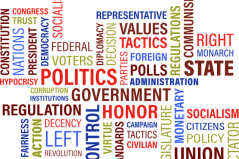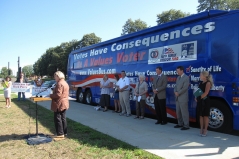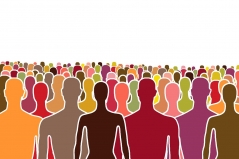Politics doesn’t define how most people see themselves
Politics doesn’t define how most people see themselves
The social groups to which we belong shape how we see ourselves, but which groups matter most? We show that political parties and ideology are not the first things that come to mind when people think about themselves. Instead, identities like nationality and age are far more central and may help bridge political divides. / more
Political ideology is more than just “liberal” and “conservative”

keywords:
political psychology / ideology / need for cognitive closure / policy attitudes / prejudice / discrimination
Political ideology is more than just “liberal” and “conservative”
In this blog post, I describe new evidence that thinking about political ideology on a single liberal/left to conservative/right spectrum masks important nuances in the origins of political ideologies and in the way that people apply those ideologies to important judgments, including those of other people (i.e., prejudice). / more
Bleeding-heart liberals and hard-hearted conservatives: Political dehumanization in the United States
keywords:
political psychology / dehumanization / stereotypes / political ideology
Bleeding-heart liberals and hard-hearted conservatives: Political dehumanization in the United States
My previous blog post covered new research showing that liberals and conservatives are prejudiced against one another to an equal degree. In this post, I will review evidence that liberals’ and conservatives’ prejudices lead them to dehumanize their political opponents—that is, to see them as less than human. / more
Being rational and emotional are not (necessarily) contradictions
keywords:
voting / rationality / emotions / morality / political psychology
Being rational and emotional are not (necessarily) contradictions
In the first part of this three part series, my colleague Ellie Shockley described how rational thinking may drive political attitudes and voting behavior. In the second part of the series, Matt Moytl described how emotion may drive political attitudes and voting behavior. In the final part of this series, I discuss how emotions and reasons are not necessarily in conflict. / more
Political convictions emerge from the gut
keywords:
political psychology / voting / rationality
Political convictions emerge from the gut
In the first part of this three part series, my colleague Ellie Shockley described how rational thinking may drive political attitudes and voting behavior. In this second part of the series, I describe how emotion may drive political attitudes and voting behavior. In the final part of this series, Mark Brandt will discuss how emotion and reason each contribute to people’s political attitudes and behaviors. / more
Are voters rational?

keywords:
voting / rationality / political psychology
Are voters rational?
Are voters rational? As a part of a three-part series on the subject of voter rationality, my colleagues Matt Motyl, Mark Brandt, and I will discuss some theories and research dealing with voters’ attitudes and behaviors. We hope you will stay a part of the conversation with us! / more

